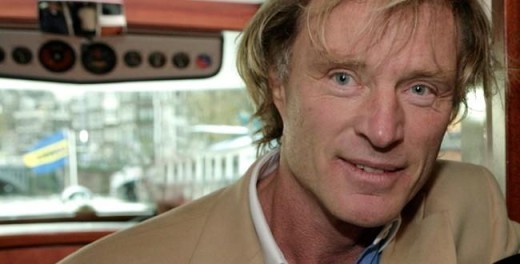
After fifty years of rebellion, struggle, and strife, the Revolution of Curacao has run out of steam, as well as issues. Boxer-champion and union leader, Wilson Godett, rioted against multinational oil company SHELL and on May 30, 1969, set fire to colonial Otrobanda-Willemstad.
Godett’s Revolution became the big winner only ten years later. After nationalization that caused Shell to lose its upstream oil sources in Venezuela, the Dutch oil giant decided to leave the island in 1986 and turned over the entire refinery plant to the people of Curacao.
A mass exodus of people and companies followed over the next ten years. In the wake of SHELL’s departure, many packed up and closed shop. Mass-migration of professionals mostly to The Netherlands left behind a crippled island economy, but also fertile soil for Revolutionary seeds to root.
The Godett’s children, Anthony and Myra inherited their spot in the limelight as new champions of island-underdogs, of the uneducated and unemployed. They promised a paradise of great wealth and prosperity if only the island could throw off shackles of its colonial past by independence. Anthony and his Prime Minister-sister Myrna considered the fast growing narco business as a new blessing of unheard of wealth for the destitute, and that became their battleground. Law Enforcement fought fierce battles over body scans at Hato- airport, and 100%- checks of passengers. Once again, the Revolution and its politicians prevailed. Body scans were shut down, and the narco airport-team with sniffing dogs and all, retired. More than 30,000 drug trafficking cases were thrown out of Court. A minor conviction of Anthony Godett for corruption landed him in jail and only added to his stature as a martyr of the Revolution.
Frantz Fanon of Martinique and the leading proponent of the Algerian Revolution became the inspiring father of Latino revolutions. Fanon like Marx believed that revolutionary violence was needed to escape colonial past and attain true socialism.
” Violence alone, violence committed by the people, violence organized and educated by its leaders, makes it possible for the masses to understand social truth and gives the key to them.”
In Venezuela, following the Cuba Revolution, populist political leader, Hugo Chavez, quickly identified Revolutionary violence with the rapidly growing narco violence in the streets of Caracas; the line between Revolutionary violence and ordinary crime rapidly blurred. Many of Curacao’s political leaders of the Revolution could not wait to pledge their allegiance to the glorious Bolivarian Revolution of Hugo Chavez.
On 10-10-10, the Revolution prevailed once more, and a long and hard-fought autonomy became the new reality. Gerrit Schotte, the first Prime Minister, and political ally, Helmien Wiels, became the new populist leaders. Daily, with Fanonic fever, Wiels’ hysteric cry for Revolutionary blood echoed over the airwaves. The Dutch colonial collaborators would soon be “send back home in body bags.” Tula, the Haitian leader of Curacao’s slave revolt in 1795, was re-tooled as the new father of the free nation.
Wiels was assassinated only after a brief period in power. Sadly, changing the name of a High School was about the only lasting accomplishment on his record. Schotte’s bravado could not compensate for his lack of knowledge, skill and experience in administration, and today, also the former Prime Minister is facing his Judges of the Court.
Wiels’ successor, Prime Minister Ivar Asjes scored another win for the Revolution by promoting “Yu di Korsou” as the population group with special legal privileges, especially in the workforce. Also, drug trafficking was hardly prosecuted any longer. A constant stream of ‘mules’ provided an extra source of income for the poor. Thousands of clandestinely constructed buildings rose out of the shadow economy. A new business class, outside and above the law, called the shots, behind the scenes of a show parliament.
Recent elections ended the socialist/ Bolivarian Chavista-Revolution of Venezuela. Chavez’ successor, Maduro, became an embarrassment instead of an inspiration to the revolution. Colombian FARC-leaders concluded a lasting peace with the government in power and, after sixty years, aging guerilla fighters are eager to enjoy retirement. The Argentinian socialist Kirchner-junta stepped down as well, and Brazil’s People’s revolution is in deep trouble. Even Cuba’s Castro-brothers made peace with USA_President Obama
The Latino revolutions are exhausted. They may have accomplished much and realized many fancy dreams, but never brought great wealth and prosperity to its people.
In Curacao, the Revolution has also run out of steam and issues. Maybe wealth-creation can be next.
Bron: CuracaoChronicle


Narco trafficking is still taking over government on the islands. Crime is rising rapidly. Drugs trafficking seems to be the only extensive revenue left. The loyalty of the voter must be secured. A government must be on the safe side in that department. Many a liquidation in the drug scene is accomplished with a zeal worthy of a superior cause. It is a very volatile situation. The quality of government therefore leaves an increasing lot to be desire. The rule of law becomes increasingly unavailable. Renee van Aller&John de Vries